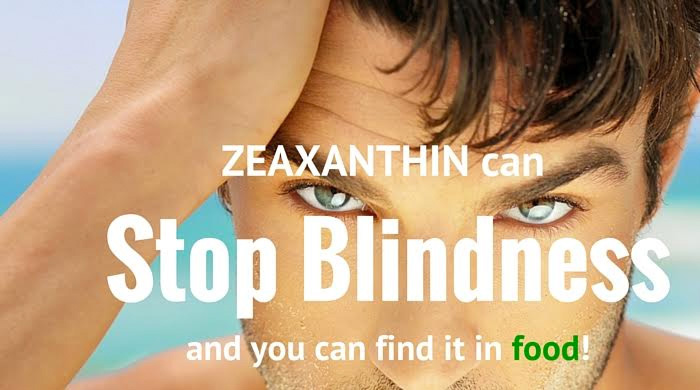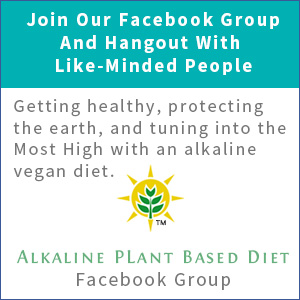Zeaxanthin Can Stop Blindness, and You Can Find It in Common Food!

Article by Olivia Johanson
Your eyes serve as a gateway to seeing the most memorable life moments, and a healthy lifestyle is key in keeping them in great shape. Cataracts and age-related macular degeneration are the common eye problems experienced by most people as they age.
You can, however, lower your risk for these conditions by consuming foods rich zeaxanthin. This very important phytonutrient helps protect you from eye disease, or can delay its progression.
Zeaxanthin (zee-ah-ZAN-thin) is a powerful antioxidant that keeps your eyes protected by reducing glare and absorbing the damaging blue light. This natural substance shields your cells and membranes by fighting off the harmful free radicals produced by the blue light that stresses your eyes.
Zeaxanthin comes in the form of pigment or colorants. Another antioxidant that also improves eye health is Astaxanthin. As this is found in mostly non-plant based foods, you might prefer Zeaxanthin, which is prominent in certain vegetables and fruits.
Zeaxanthin and Eye Health
As mentioned earlier, zeaxanthin is predominantly present in your eyes and brain. This natural substance is actually the main component of your retina’s macular pigment, which is the most important area for central vision.
This powerful antioxidant works to sharpen your eyes’ central vision, lessen the effects of the glare-causing blue light, and keep your visual acuity in great shape. All of these functions take place in the fovea, which can be found in the center of the human eye. This area is where your body needs a continuous supply of zeaxanthin.
To boost your body’s zeaxanthin levels, you need to incorporate foods that are rich in this natural chemical into your daily diet. Your body is not capable of producing zeaxanthin, which is why you need to help increase its number by altering your dietary intake.
Still skeptic? Numerous studies have shown that zeaxanthin can either help prevent age-related macular degeneration or delay the progression of the condition.
A study published in Nutrition and Metabolism[1] suggested that supplements that contain zeaxanthin, lutein, and meso-zeaxanthin have increased the macular pigment’s optical density in the eyes of most human subjects.
Other findings that were published in the American Journal of Epidemiology, Ophthalmology, and Archives of Ophthalmology[2] revealed a link between increased zeaxanthin and lutein levels in the body and a lowered risk of AMD (Age-Related Macular Degeneration).
Two more studies in the Investigative Ophthalmology and Visual Science journal discovered that eyes with high macular pigment levels were less likely to develop macular degeneration.
Lastly, a study published in the Optometry journal[3] suggested that subjects with early AMD experienced improved night driving and visual acuity after consuming 8 milligrams of dietary zeaxanthin per day for over a year.
Foods Containing Zeaxanthin
Those studies are just some of the many published discoveries about the benefits of zeaxanthin on eye health. With so many positive findings, how can you not consider altering your diet by integrating zeaxanthin-rich foods?
If you have been wearing your eyeglasses for some time, or have a family history of macular degeneration, then attempting to increase your body’s zeaxanthin levels is worth a shot. This natural chemical is commonly found in plant foods, and the consumption of a whole food plant-based diet is an excellent way to saturate your eyes with eye-protecting phytonutrients.
Zeaxanthin-rich foods typically come with lutein, another natural substance that helps improve eye health. These dietary carotenoids were found to have the ability to promote eyesight. Here are examples of plant-based foods that are rich in zeaxanthin and lutein:
Vegetables
Dark leafy vegetables are rich in zeaxanthin and lutein. Cooked kale, turnip greens, collard greens, and spinach have the highest levels of these two important nutrients. One cup of cooked kale already contains up to 20 milligrams of zeaxanthin, while the same amount of cooked turnip greens can give you up to 12.2 milligrams, and a cooked spinach has up to 12.7 milligrams per cup.
Other green, orange, and yellow vegetables are also rich in zeaxanthin. Brussels sprouts and green peas contain about 2 milligrams of zeaxanthin per cup, while cooked broccoli provides up to 3.4 milligrams for the same amount. Experts say that sweet orange bell peppers also contain a high dose of this substance.
Fruits
Tangerine and orange offer 0.34 milligram of zeaxanthin per cup. Other fruits with substantial amounts of zeaxanthin and lutein are grapes, kiwi, berries, mangoes, papayas, and more. You can also consume them as a smoothie or juice.
Experts, however, recommended consuming fruit juices in moderation. I would encourage consuming the fruit intact as you lose the beneficial fiber during the juicing process.
(NLE Note: Though juicing removes beneficial fiber and some nutrients, making smoothies does not. Studies have shown the making smoothies makes its nutrients more bioavailable and easily absorbed into the bloodstream.)
Supplements?
Many companies have integrated carotenoids to their supplements. There is currently no recommended daily dose for zeaxanthin or lutein, but some health experts say that you should consume at least 6 milligrams per day.
It also remains uncertain whether consuming these nutrients through supplements have the same effect as obtaining them through food sources. Some supplements seem to do more harm than good.
It would be best to consult with your trusted doctor before consuming any eye supplements, and it is best to saturate your eyes with these eye-protecting phytonutrients by consuming a lot of whole plant foods.
[1] Nutrition and Metabolism
[2] American Journal of Epidemiology, Ophthalmology
[3] Optometry journal






